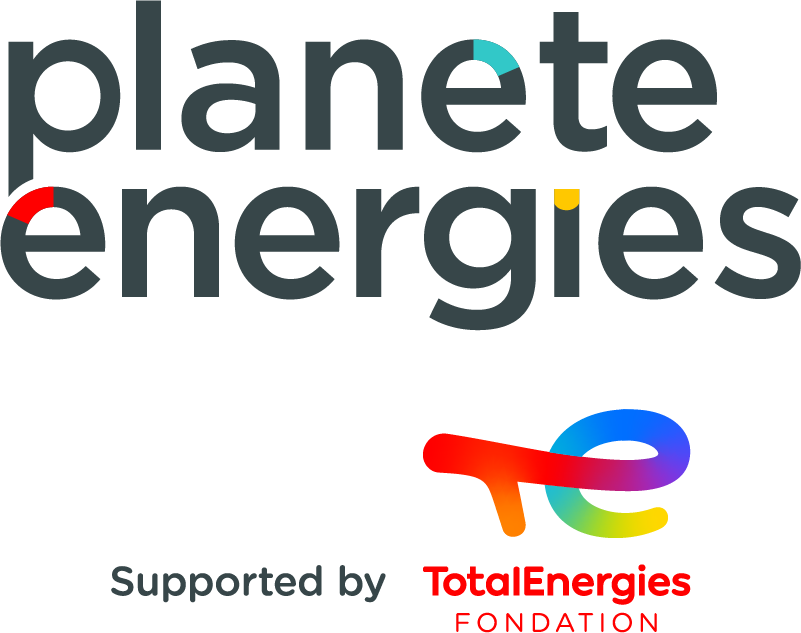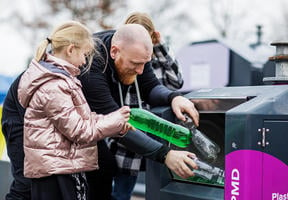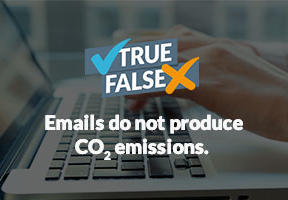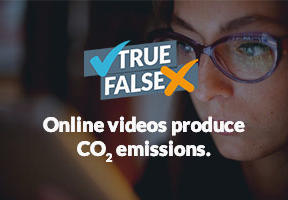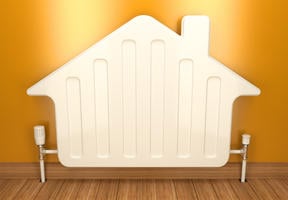Recycling Solar Panels: Two Expert Analyses
10 min read
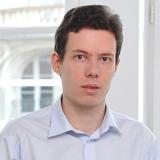
Nicolas Defrenne
Collecting Used Panels – The Role of an Eco-Organization
Given the considerable global development of solar photovoltaics (PV), panel is becoming a high-stakes issue. Nicolas Defrenne, Chief Executive Officer of Soren, explains the role of eco‑organizations in the life cycle of solar equipment.
To start with, it should be noted that a “used photovoltaic panel” means a panel that its owner wants to dispose of, whether it still works or not. The current crystalline panels have a guaranteed minimum efficiency of 25 to 30 years. However, users often want to discard them earlier, either because they would benefit from more efficient panels, as technology is rapidly improving, or for a number of other reasons.
I often give the example of a disused airfield whose soil was polluted from jet , making it unsuitable for farming. The local authorities in charge leased this disused industrial site to a developer on a 20-year contract. A solar farm has been set up while the fallow land recovers. At the end of the lease, the panels will be recycled. So we should talk about the period of use, not the lifespan.
The photovoltaic sector has been booming since the beginning of the century. Today, we are witnessing the arrival of the first generation of used panels. The amount collected is going to keep growing. In 2018, we accumulated almost 3,400 metric tons in France, nearly ten times more than in 2015. In the same year, 72,000 metric tons of new panels were installed. By 2030, 150,000 metric tons of panels should be reaching the end of their useful lives. That is the equivalent of 15 Eiffel Towers!
How Collection is Organized
In most European countries, eco-organizations were set up to collect and recycle waste from the sector. In France, this role falls to Soren, which is governed by seven entities (companies, industry associations and nonprofit organizations) operating in the photovoltaic sector.
Collection, which is free for the panel owners, is similar to that of other waste electrical and electronic equipment (WEEE). Take a look at your phone – there is a crossed-out trash can symbol on the back. The same image is also found on photovoltaic panels, which need to be brought to one of 200 partner collection points in France. For quantities of more than 40 panels, panel owners send us a request online1 and we charter trucks to go and pick up the equipment.
Once collected, the equipment is sent to treatment centers that we select following a call for tenders. We chose Véolia from our tender. The company developed the first photovoltaic panel recycling unit in the world with a capacity of 3,000 metric tons per year. We expect that we will need a second processing unit by 2021. A particularly high percentage of photovoltaic panels can be recovered – almost 95% for a ‑based module with an aluminum frame.
Like all WEEE, the recycling is financed by the eco-contribution transparently included in the price of each new piece of equipment sold. It works a little like a pay-as-you-go pension system: the eco-contribution you pay finances the recycling of equipment that has just reached the end of its useful life rather than the equipment you have just bought. It is up to us to ensure the system is well managed over the years...
Economic and Environmental Criteria
Protecting the environment and properly managing consumers’ money are at the core of our four decision-making criteria, which are as follows:
- Economic: the consumer is paying, so we need a recycling channel with controlled costs.
- Technical: recycling must be optimal and recover as much material as possible (glass, aluminum, cables, etc.) to promote a truly circular economy.
- Environmental: recycling must not have a significant negative impact, i.e., from toing and froing of trucks or excessive energy consumption in the treatment plant. It must comply with the most stringent quality standards.
- Social and inclusive: we give preference to service providers who help bring people back into the workforce.
Lastly, we try to promote eco-design. This involves taking the into account right from the design stage of the product or service, and then throughout all stages of its life cycle.
Our work is at the crossroads of the and the circular economy. We believe that one cannot exist without the other.
Nicolas Defrenne, 34, has been Chief Executive Officer of Soren since 2015. A graduate of Sciences Po, he worked at France Stratégie and the economic department of the French embassy in Hong Kong before joining Ernst and Young (EY). He then founded a start-up in the recycling industry.
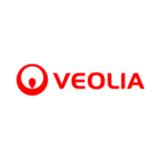
Frédéric Ivars
How to Recycle a Used Solar Panel?
Recycling Solar Panels
The recycling of photovoltaic (PV) panels is set to become an industry in its own right. However, there is still much work to be done to improve the processing and recovery technologies and to ensure economic viability. This article offers an analysis by Frédéric Ivars, Director of the Rousset Veolia site, the first plant specifically dedicated to PV panel recycling in Europe.
The processing of used photovoltaic panels is a high-stakes issue given the fast-growing number of models reaching the end of their useful lives and entering the recycling market. A new industry has emerged in response, with the aim of optimizing the recovery of all the glass, aluminum, silicon, plastic and other materials making up photovoltaic panels.
Techniques Used
To better understand this matter, take the Rousset processing plant that I manage as an example. We start by removing the copper cables, the junction boxes and the aluminum frame that generally surrounds the panel. The copper and aluminum, which account for 10% to 15% of the panel’s weight, are sought-after metals with well-established markets.
Everything is automated from that point on, with the support of a team of two or three technicians. The panel is gripped by an arm and suction cups and placed on a conveyor belt that enters a long, airtight enclosure to prevent dust emissions. A “guillotine” cuts the panel into small squares that are then sent to two successive shredders. The metallic parts and the non‑ferrous connectors are separated from the glass using Eddy currents. Fluidization phases isolate the plastic polymers, in particular the Tedlar film covering the back of the panel, which will be used as combustibles.
There are no rare metals. The small electrical connectors are either made of tin-plated or silver-plated copper. The silver takes the form of a thin film, which ends up in the glass dust, but at extremely low levels of less than 1%.
The processing plant has a nominal production capacity equal to one metric ton per hour. The main fractions recovered are glass in two forms (granules of 1 to 2 millimeters and dust), plastic and silicon metal in powdery form. This represents close to 80% of the panel. In total, with the aluminum frame, the cables and the junction boxes, 95% of the panel’s weight can be recovered.
Economic Viability
The market has yet to reach maturity. It is growing at a rate of 30% to 50% per year, but 90% of the panels we receive today are of the “maintenance” type, in other words broken or out of service. However, given that the average useful life of a PV panel is between 15 and 25 years, we are going to start receiving entire solar farms.
We have devised a replicable processing unit, as it is preferable to have small plants located near production areas. In line with this, our first plant was built in the South of France where there are a lot of solar farms, which facilitates logistics and makes it unnecessary to build large infrastructure and huge storage areas.
As with any business activity, we must also consider economic viability. For processing services, we go through an eco‑organization, Soren, which utilizes the revenue gained from the French eco‑contribution paid by consumers. However, at the same time, we buy back the panels from Soren as we are only able to sell the constituent elements if we are the owners. It is from the resale of these raw materials that we ensure the economic viability of our company.
Given the high proportion of glass, recovering this material is a key concern. At this level, research and development plays a pivotal role. Together with glass industry professionals, we are examining the best possible way to recover and reuse glass granules and dust.
An entire industry must be put in place, with all the uncertainties a new endeavor entails. We have a processing capacity of 4,000 metric tons, a volume that should be reached in France in 2021. As an extra 55,000 metric tons of panels are added to the French stock each year, we can logically foresee an equivalent number of panels requiring processing in the long term. However, this will depend on the policies adopted by solar farm operators.
We do not have any real competitors in Europe for our automated integrated machine. Until now, it has been glassmakers who have recovered the used or end-of-life photovoltaic panels. However, we must continue to work with all stakeholders to ensure the industry’s future because recycling, a well-known concept, does not necessarily entail economic viability, as the market’s future development, and consequently the resale of recovered materials, remains uncertain.
Frederic Ivars is the director of the Triade Electronique photovoltaic panel recycling plant in Rousset, in France’s Bouches-du-Rhône region. Triade Electronique is a subsidiary of Veolia specializing in the management and processing of waste electrical and electronic equipment (WEEE).
- See the Soren website
